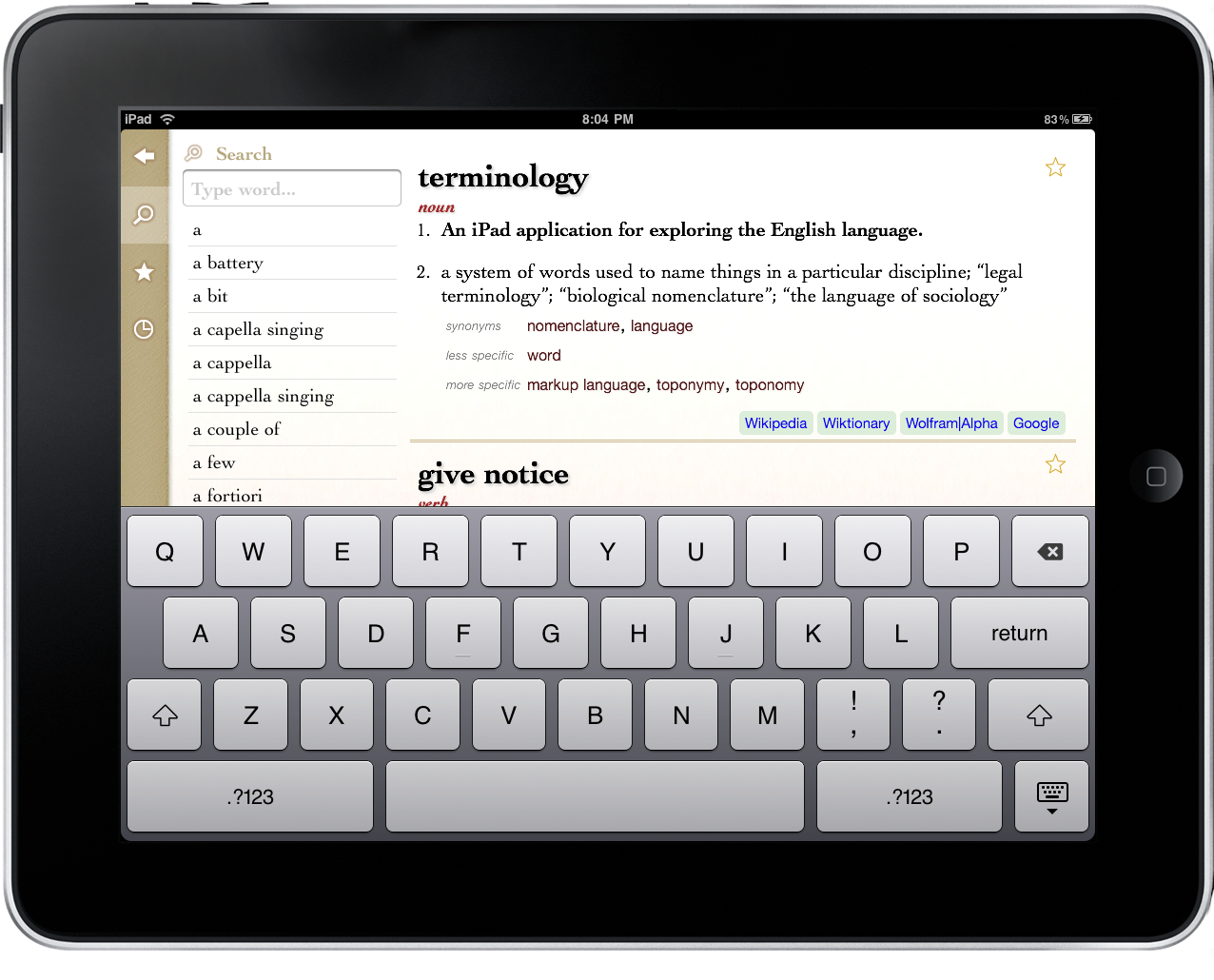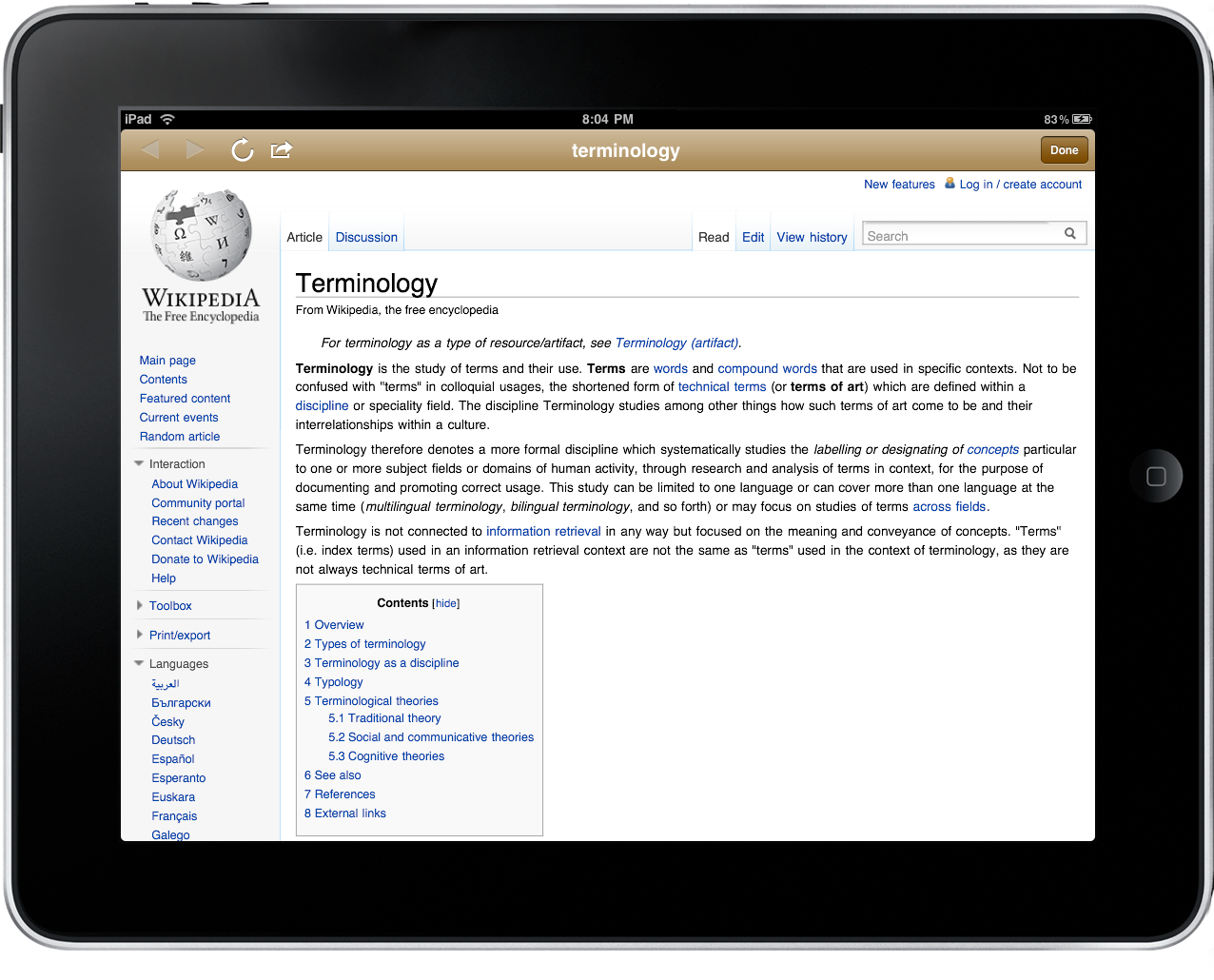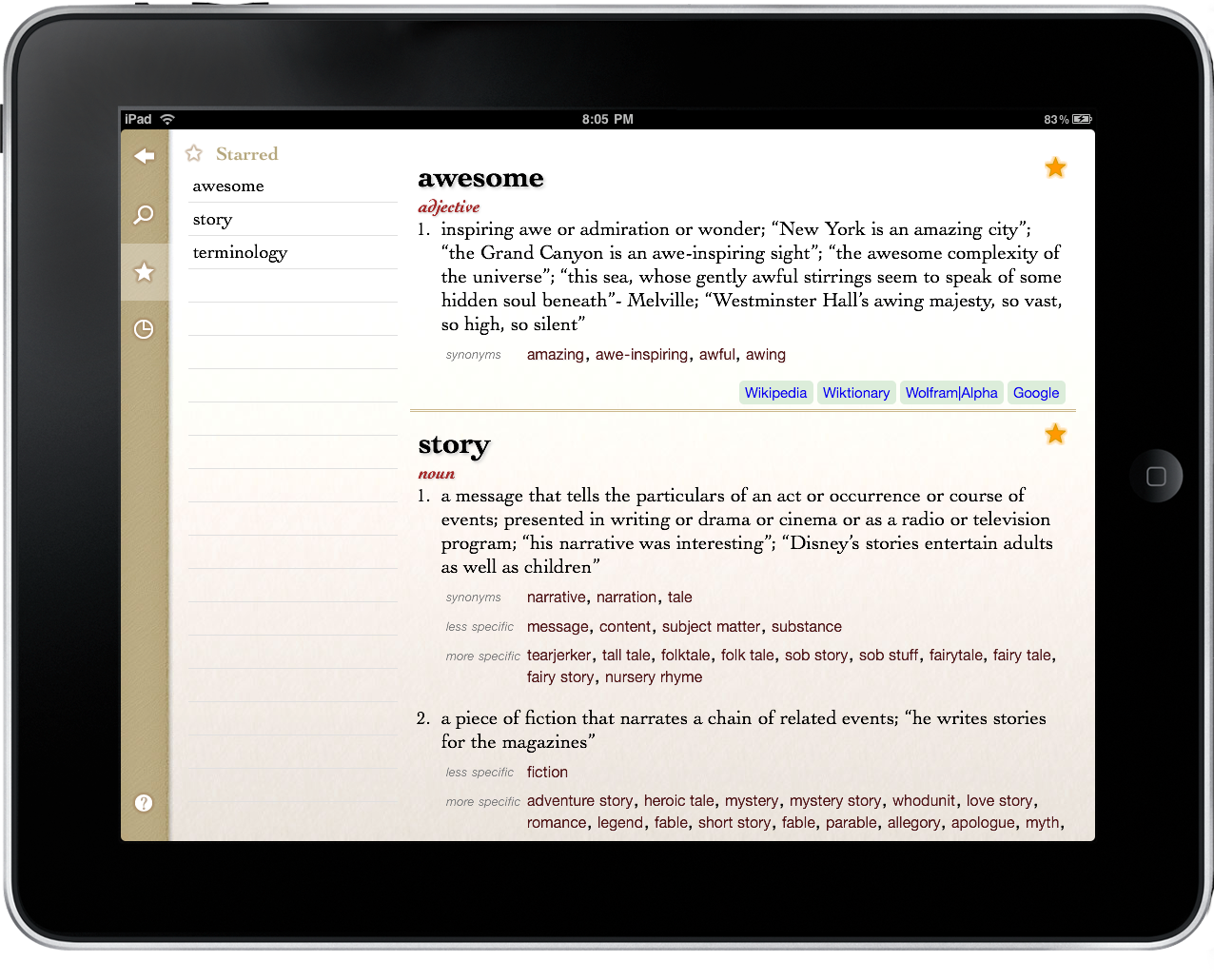When Federico passed this application onto me, I was virtually told nothing about it. And without any precursor I sat looking at a rather drab icon on an iPad homescreen thinking, “This is going to be really lame.” Already I had judged a book by its cover, and that was a mistake. Terminology for the iPad is a dictionary, thesaurus, and all around word browser for the English language that’s become useful in my daily workflow.
When I write reviews or any offbeat publication where I’m not talking about news, I often refer to a thesaurus to help me find the right words. The idea is there, sure, but the right words never seem to come without a bit of assistance for these creative juices via Apple’s built in Dictionary tool. I feel that Terminology for the iPad is what allows me to take Apple’s Dictionary with me. As you can have history, favorites, and external links to delve deeper on your favorite words, Terminology is the app you writers have been waiting for. It’s a killer dictionary based off of Princeton’s own WordNet project, and who can’t fall in love with a name like, “WordNet?”
So my wordy friends, I must say that Terminology is pretty but plain. Its sandy gradients and occasional red highlights overlay a paper-like texture which replicates the look and feel of a real dictionary. Immediately on the left, words sprawl across an almost infinite column as you scroll through various phrases, with definitions and links conveniently displayed on the right. It’s a simple concept really: you can scroll to your word of choice, search for words & phrases, and get the content you tap defined for you in mere seconds.
Looking for various definitions on words and phrases, I came up mostly successful. It’s perfect as a dictionary (as it better be), but Terminology sometimes failed to find what I thought were valid English phrases. While I haven’t heard “seize the day” lately, Terminology couldn’t define this excellent phrase. “Go get ‘em!” and “tally ho!” were absent as well, but I’m surprised I couldn’t find, “Bite the bullet.” I couldn’t even find “the bee’s knees!” I did give up eventually, but as a service advertised to find ‘phrases,’ I was disappointed.
If you’re looking for a full fledged thesaurus, Terminology isn’t perfect but does an okay job. While there isn’t a specific section for finding related words, definitions are supplemented by synonyms that you can use to narrow down the right word you’re looking for. However, I often find more results with Apple’s own Dictionary app, or via an actual thesaurus.
Supplementing the definitions, we have various links that can lead us to Wikipedia, Wiktionary (which usually yields the best results), Wolfram|Alpha, and Google. Sometimes these links will work for phrases that Terminology claims is, “Not found.” But if you do find something you like, you can favorite the definition so you always have a list of most-used or most-needed words at your fingertips. Not all of us can remember what a Bull Pine is after all.
Overall it’s a great reference tool that allows you to keep a minimal database of saved items, history, and discoverable words. It’s a useful tool that occasionally helps me find the material I’m looking for, although I’m not necessarily thrilled with the ‘lack of phrases’ or weak Thesaurus support. For the most part, Terminology is lightning fast, has a great interface about it, and performs duties as a dictionary quite well. I would say it’s a completely safe buy, and at only $1.99 you should at least give it a try if you’re in need of a mobile dictionary.




